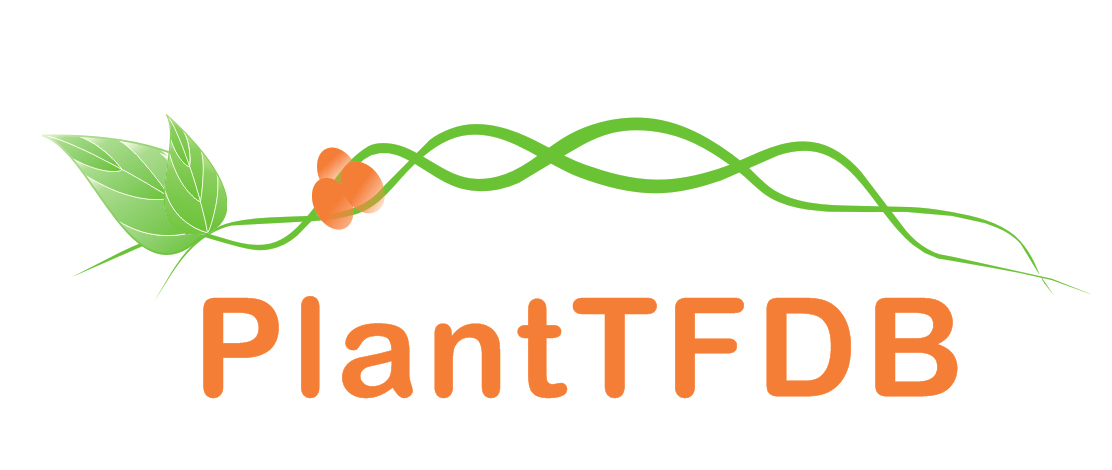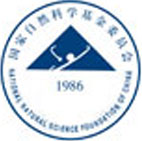 |
PlantRegMap/PlantTFDB v5.0
Plant Transcription
Factor Database
|
| Home TFext BLAST Prediction Download Help About Links PlantRegMap |
Transcription Factor Information
| Basic Information? help Back to Top | |||||||||
|---|---|---|---|---|---|---|---|---|---|
| TF ID | cra_locus_8763_iso_6 | ||||||||
| Organism | |||||||||
| Taxonomic ID | |||||||||
| Taxonomic Lineage |
cellular organisms; Eukaryota; Viridiplantae; Streptophyta; Streptophytina; Embryophyta; Tracheophyta; Euphyllophyta; Spermatophyta; Magnoliophyta; Mesangiospermae; eudicotyledons; Gunneridae; Pentapetalae; asterids; lamiids; Gentianales; Apocynaceae; Rauvolfioideae; Vinceae; Catharanthinae; Catharanthus
|
||||||||
| Family | AP2 | ||||||||
| Protein Properties | Length: 643aa MW: 71430.8 Da PI: 6.9279 | ||||||||
| Description | AP2 family protein | ||||||||
| Gene Model |
|
||||||||
| Signature Domain? help Back to Top | |||||||
|---|---|---|---|---|---|---|---|
| No. | Domain | Score | E-value | Start | End | HMM Start | HMM End |
| 1 | AP2 | 51 | 3.6e-16 | 293 | 352 | 1 | 55 |
AP2 1 sgykGVrwdkkrgrWvAeIrd.pse.ng..kr.krfslgkfgtaeeAakaaiaarkkleg 55
s+y+GV++++++gr++A+++d ++ g ++ ++++lg ++ +e+Aa+a++ a++k++g
cra_locus_8763_iso_6_len_2503_ver_3 293 SQYRGVTRHRWTGRYEAHLWDnSCKkEGqtRKgRQVYLGGYDMEEKAARAYDLAALKYWG 352
78*******************988886678446*************************98 PP
| |||||||
| 2 | AP2 | 45.7 | 1.6e-14 | 397 | 446 | 3 | 55 |
AP2 3 ykGVrwdkkrgrWvAeIrdpsengkrkrfslgkfgtaeeAakaaiaarkkleg 55
y+GV+++++ grW A+I + +k +lg+f t eeAa+a++ a+ k++g
cra_locus_8763_iso_6_len_2503_ver_3 397 YRGVTRHHQHGRWQARIGRVAG---NKDLYLGTFSTQEEAAEAYDIAAIKFRG 446
9***************988532...5************************997 PP
| |||||||
| Protein Features ? help Back to Top | ||||||
|---|---|---|---|---|---|---|
| Database | Entry ID | E-value | Start | End | InterPro ID | Description |
| SuperFamily | SSF54171 | 2.75E-16 | 293 | 361 | IPR016177 | DNA-binding domain |
| Pfam | PF00847 | 8.7E-13 | 293 | 352 | IPR001471 | AP2/ERF domain |
| CDD | cd00018 | 3.92E-21 | 293 | 359 | No hit | No description |
| Gene3D | G3DSA:3.30.730.10 | 2.5E-15 | 294 | 360 | IPR001471 | AP2/ERF domain |
| PROSITE profile | PS51032 | 18.782 | 294 | 360 | IPR001471 | AP2/ERF domain |
| SMART | SM00380 | 6.5E-28 | 294 | 366 | IPR001471 | AP2/ERF domain |
| PRINTS | PR00367 | 3.9E-6 | 295 | 306 | IPR001471 | AP2/ERF domain |
| CDD | cd00018 | 5.29E-25 | 395 | 456 | No hit | No description |
| SuperFamily | SSF54171 | 1.44E-17 | 395 | 456 | IPR016177 | DNA-binding domain |
| Gene3D | G3DSA:3.30.730.10 | 4.0E-18 | 396 | 454 | IPR001471 | AP2/ERF domain |
| SMART | SM00380 | 7.5E-34 | 396 | 460 | IPR001471 | AP2/ERF domain |
| PROSITE profile | PS51032 | 19.177 | 396 | 454 | IPR001471 | AP2/ERF domain |
| Pfam | PF00847 | 2.8E-9 | 397 | 446 | IPR001471 | AP2/ERF domain |
| PRINTS | PR00367 | 3.9E-6 | 436 | 456 | IPR001471 | AP2/ERF domain |
| Gene Ontology ? help Back to Top | ||||||
|---|---|---|---|---|---|---|
| GO Term | GO Category | GO Description | ||||
| GO:0006355 | Biological Process | regulation of transcription, DNA-templated | ||||
| GO:0007276 | Biological Process | gamete generation | ||||
| GO:0010492 | Biological Process | maintenance of shoot apical meristem identity | ||||
| GO:0042127 | Biological Process | regulation of cell proliferation | ||||
| GO:0005634 | Cellular Component | nucleus | ||||
| GO:0003677 | Molecular Function | DNA binding | ||||
| GO:0003700 | Molecular Function | transcription factor activity, sequence-specific DNA binding | ||||
| Sequence ? help Back to Top |
|---|
| Protein Sequence Length: 643 aa Download sequence Send to blast |
MEVTSSDSSQ PPPQPHHHHF NHQNQSHPPS STATTTTQTS FYSSSSSHFN TSNPLCFGEN 60 TGFHTPLSVM PLKSDGSLCI MEALRRSQTQ VMGPNTSPKL ENFLGGNNPY GSHEREAAVL 120 SLDSIFYSQS VEGPIRQEGN IQVQENHHPY CHGLQHCHDM YQQQANVAEE TNCNNDNVQI 180 PATMSGDELP CLKNWVSHNH VPFNGDHHEL EQHMNNSATM VNDGGAIGCG DLQSLSLSMS 240 PGSQSSCVTA PKHISPTETD CLAIETKKRS SSKVAPKQPV HRKSIDTFGQ RTSQYRGVTR 300 HRWTGRYEAH LWDNSCKKEG QTRKGRQVYL GGYDMEEKAA RAYDLAALKY WGPSTHINFS 360 LENYEQELED MKNMSRQEYV AHLRRKSSGF SRGASMYRGV TRHHQHGRWQ ARIGRVAGNK 420 DLYLGTFSTQ EEAAEAYDIA AIKFRGVNAV TNFDISRYDV ERIMASNTLP TGELARRNKD 480 REQPINESIE YGSSSAQNAD QEIVQTAKNV IVSDWKMALY HQQQQNEPHV ESLRNYSCSS 540 FSTSLHDLVG IGIDSGNSTH QQQSILDESA KIGAHFSNSS SLVTSLNNSR EASPDRNGTS 600 VTKFISSPLP TTNLTSWIPS AQLKPVPISM AHLPVFAAWG GDI |
| Functional Description ? help Back to Top | ||||||
|---|---|---|---|---|---|---|
| Source | Description | |||||
| UniProt | Transcription activator that recognizes and binds to the DNA consensus sequence 5'-CAC[AG]N[AT]TNCCNANG-3'. Required for the initiation and growth of ovules integumenta, and for the development of female gametophyte. Plays a critical role in the development of gynoecium marginal tissues (e.g. stigma, style and septa), and in the fusion of carpels and of medial ridges leading to ovule primordia. Also involved in organs initiation and development, including floral organs. Maintains the meristematic competence of cells and consequently sustains expression of cell cycle regulators during organogenesis, thus controlling the final size of each organ by controlling their cell number. Regulates INO autoinduction and expression pattern. As ANT promotes petal cell identity and mediates down-regulation of AG in flower whorl 2, it functions as a class A homeotic gene. {ECO:0000269|PubMed:10528263, ECO:0000269|PubMed:10639184, ECO:0000269|PubMed:10948255, ECO:0000269|PubMed:11041883, ECO:0000269|PubMed:12183381, ECO:0000269|PubMed:12271029, ECO:0000269|PubMed:12655002, ECO:0000269|PubMed:8742706, ECO:0000269|PubMed:8742707, ECO:0000269|PubMed:9001406, ECO:0000269|PubMed:9093862, ECO:0000269|PubMed:9118807}. | |||||
| Binding Motif ? help Back to Top | |||
|---|---|---|---|
| Motif ID | Method | Source | Motif file |
| MP00088 | SELEX | Transfer from AT4G37750 | Download |

| |||
| Annotation -- Protein ? help Back to Top | |||||||
|---|---|---|---|---|---|---|---|
| Source | Hit ID | E-value | Description | ||||
| Refseq | XP_027094961.1 | 0.0 | AP2-like ethylene-responsive transcription factor ANT | ||||
| Refseq | XP_027148114.1 | 0.0 | AP2-like ethylene-responsive transcription factor ANT | ||||
| Swissprot | Q38914 | 1e-159 | ANT_ARATH; AP2-like ethylene-responsive transcription factor ANT | ||||
| TrEMBL | A0A061FFL0 | 0.0 | A0A061FFL0_THECC; Integrase-type DNA-binding superfamily protein | ||||
| STRING | EOY15653 | 0.0 | (Theobroma cacao) | ||||



